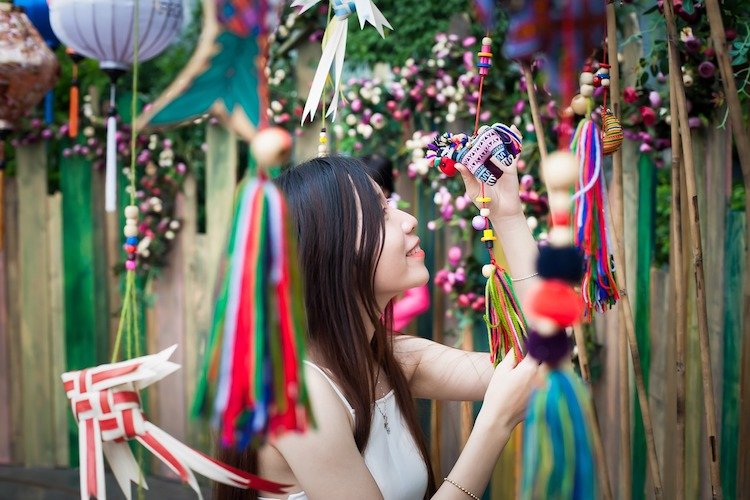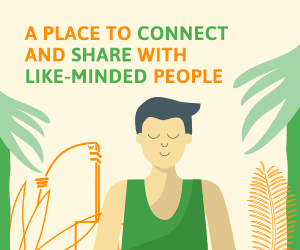When it comes to culture and happiness across the globe, what makes people happy in some countries may surprise or even shock you. And, as Dee Marques discovers, some cultures even believe that pursuing happiness can only be a bad thing.
Happiness. It's easy to think that it's a universal emotion. But is it really? In reality, cross-cultural research suggests the opposite. The relationship between different cultures and happiness is far from simple and can vary enormously from country to country.
In fact, in some parts of the world happiness is not necessarily a desirable state. For example, in Chinese culture, funerals are a happy occasion and preparing for them can generate levels of enthusiasm that would be hard to understand in the West.
In this culture, people go to great lengths to prepare their funeral, choosing the clothes they'll wear, finding matching shoes and jewellery, planning the meals that will be served, etc. From a Western point of view, it would be easy to think they're preparing for a wedding instead!
This example from China is just one of many examples that show how happiness in different cultures is interpreted and experienced. In this article we’ll take a look at the fascinating concept of happiness from a cross-cultural point of view, since learning more about happiness in different cultures can help us understand better our own pursuit of contentment.
Happiness in different cultures: what makes people happy?
The more we learn about how happiness is understood across cultures, the more we realise that it's never straightforward to find common ground between different cultures and their well-being and joy. 
Culture clash: the meaning of happiness in China is different Pixabay/vutrongtien
This subject has drawn the attention of researchers for decades. For example, surveys like Pew’s Ladder of Life and The World Values Survey try to measure life satisfaction and well-being at a global level. Year after year, the United Nations' World Happiness Report ranks countries according to their happiness levels and tries to understand what makes people happy.
All these surveys and reports offer interesting insights into the ‘ingredients’ of happiness across cultures. And while it's important to remember that there’s no standard recipe, the findings suggest that there are pretty much two ways of understanding and experiencing well-being and happiness: the Western and the non-Western way.
Culture and happiness: East vs West
In Western societies, income and wealth are often considered important factors when it comes to achieving happiness. But does that mean that less well-off people are doomed to be unhappy? Not necessarily.
• JOIN US! Find new friends from different cultures around the world! •
In fact, some studies show that in Eastern countries poor people are actually happier, possibly because in those cultures happiness is closely associated with factors other than income and material possessions, such as personal relationships. It's also interesting to note how happiness levels seem to decline as developing countries become wealthier, as is the case in India, where people reported being less happy as their income levels grew.
“While happiness exists in all cultures, its meaning and the way it's experienced vary enormously: what makes people happy in one country and can be different in another.”
However, a country’s development levels are not the only factor. Take two developed nations, like the United States and Japan, and you'll still see differences in how happiness is perceived. In the USA, freedom and personal achievement are strong factors in the construction of happiness, whereas in Japan, the concept is linked to good luck, moderation and social harmony. This suggests that cultural values are important if we want to understand how people in different cultures find happiness.
RELATED: Money can't buy happiness
Among those cultural values, family ties and social roles are top priorities for happiness in different cultures. Strong human connections and interpersonal relationships are important in places like Switzerland, Iceland and Australia, just as much as they are in East Asian countries or in Latin America.
Moreover, global studies confirm that happiness is built up of different blocks, and that the five most common “building blocks” (aside from income) are having social support, a healthy life expectancy, freedom and being surrounded by an environment of trust and generosity.
Defining happiness through language
The variation in how happiness is experienced across different cultures is also evident in language. Words like ‘happiness’ and ‘happy’ carry different connotations in Eastern and Western cultures and can't always be directly translated. 
Family is key to happiness in many cultures shutterstock/Monkey Business Images
For example, Mandarin has multiple words for “happiness” that aren't a perfect equivalent to the English concept, since they can mean anything from “good mood” to “having meaning in life” or “having a good life”. In fact, in Mandarin, happiness is also defined as “having a good death”, which would be rather unthinkable in English-speaking cultures!
RELATED: Which cultures make you happy? It might depend on where you live
The way happiness is defined in different languages also points at how differently it's experienced across cultures. For instance, the Danish concept of 'lykke' is translated as 'happiness', but has very little to do with the way happiness is experienced in the United States, where it involves a state of celebration. Similarly, the word for 'happiness' in Hong Kong's Cantonese is linked to low arousal states and its meaning is closer to 'calm' or 'relaxation' rather than to celebration.
What makes people happy: the pursuit of joy
The factors contributing to happiness in different cultures are not the only thing that varies, since people's attitude towards happiness varies too. For most of us, pursuing happiness is a given, and we may make changes to our lives as part of that pursuit. But, in fact, happiness is not universally pursued in such an active way.
For example, people in Eastern cultures like China, Japan and Taiwan don't strive for happiness. In fact, they may actually be averse to the idea because they believe they'll be faced with misfortune if they do so. This is linked to cultural beliefs, like the idea that opposites go hand-in-hand or that having too much of a good thing will be punished.
“Cultural values are important if we want to understand how people in different cultures find happiness. Among those cultural values, family ties and social roles are top priorities for happiness in different cultures.”
In other cultures, happiness is associated with luck or chance, so people may see no reason to actively pursue it as a goal. This is the case in Russia, Germany, France and Norway, where perceptions differ from the US concept of happiness, where it's seen as a human right worth pursuing. In other cases, pursuing individual happiness may cause conflict with other values, like preserving social harmony, so it's less important to chase it.
Culture and happiness: conclusions
Although all this may sound confusing, there's plenty to be learnt from the many shades of meaning taken by happiness in different cultures. While happiness exists in all cultures, its meaning and the way it's experienced vary enormously: what makes people happy in one country can be very different in another.
Indeed, the symbols of happiness in different cultures vary too, and the same goes for how happiness is expressed or perceived. Neither the concept of happiness nor the factors that contribute to it are absolute or universal.
• SIGN UP! Join our curious and caring community •
This cultural approach to happiness is thought-provoking stuff. In fact, taking a multi-dimensional and cross-cultural approach can make us rethink how we go about finding personal happiness, challenge our assumptions, and ultimately make the journey towards happiness much more diverse and satisfying. ●
happiness.com | The fine art of being: learn, practice, share
Are you a happiness.com member yet? Sign up for free now to:
■ enjoy our happiness magazine
■ share and support in our happiness forum
■ self-develop with free online Academy classes
Written by Dee Marques
 A social sciences graduate with a keen interest in languages, communication, and personal development strategies. Dee loves exercising, being out in nature, and discovering warm and sunny places where she can escape the winter.
A social sciences graduate with a keen interest in languages, communication, and personal development strategies. Dee loves exercising, being out in nature, and discovering warm and sunny places where she can escape the winter.




Join the conversation
You are posting as a guest. If you have an account, sign in now to post with your account.